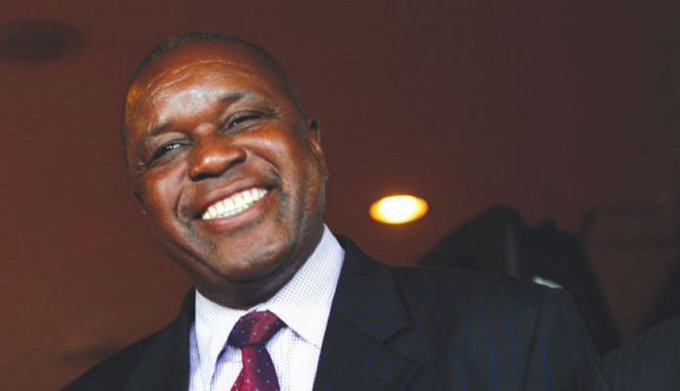|
Getting your Trinity Audio player ready…
|
By Zimbabwe Coalition on Debt and Development (ZIMCODD)
Zimbabweans from all walks of life appreciate the efforts of the war veterans in liberating the nation from colonial rule. It is such generous efforts that led to the liberation of this great country. Thus, rationale and prudent compensation of the war veterans is necessary. Nevertheless, the number of war veterans keeps increasing year after year; 42 years after independence; casting doubt on the accuracy of the figures. It is such increases in the number of the war veterans that accounts for the need for an effective public finance management conceptual assessment that captures the principles of good public finance management and examines whether the said compensation is being carried out judiciously.
Public financial management focuses on economic and governance reform programs of developing and transitional economies, using principles of fiscal discipline, legitimacy, predictability, transparency, and accountability to reform and strengthen public finances. Therefore, to give an astute and comprehensive analysis of the war veteran compensation, the aforementioned principles of public finance management will be utilised.
Fiscal Discipline: This denotes a balance between government expenditure and revenue in an economy. It is important to maintain this balance or else the expenditures may exceed the government receipts culminating in a fiscal deficit. The ramifications of such are detrimental to the economy as they will lead to the depreciation of the currency. However, if maintained it can help infuse economic stability. Therefore, an examination of the 1997 war veterans’ compensation reflects great signs of fiscal indiscipline as the government paid out Z$50,000 (US$4,300 at the time) in unbudgeted gratuities and monthly pensions initially pegged at Z$2,000 (about US$174).1 This greatly undermined currency stability and various schools of thought regard the period as the genesis of Zimbabwe`s economic challenges as the country lost approximately 72% of its value against the US$. 2 This period was later known as the black Friday of Zimbabwe’s economic decline. The 2022 war veteran compensations should not be examined outside the fiscal discipline prism as the government has a history of disregarding fiscal discipline while embracing wholesome populistic policies that are tailor-made to entice and snare the electorate.
As the nation heads towards the 2023 elections, there is a need to ensure that all government expenditure with respect to war veterans’ compensation is done within the specified budget.
Legitimacy: In Public Finance Management, legitimacy entails the ability of the government to undertake expenditures within the specified scope of the law. Thus, in Zimbabwe, every expenditure by the government must be guided by the Constitution and supporting legal frameworks. The compensation of the 1997 war veterans was not done within the scope of the law the war veterans were compensated without any supporting legal framework, a culture that was well nurtured and manifested during the Fast Track Land Reform Program. The land reform saw land being taken with the government later ratifying and legitimatising the process by enacting a legal instrument that speaks to the land question. Although the 2022 war veterans’ compensation is being done within the scope of the law, the increase in the number of beneficiaries throws a grey shade on the legitimacy of the compensation as it is also supposed to be hinged on transparency and accountability.
Predictability: This principle of Public Finance Management speaks to consistence in the utilisation of public funds. Thus, government expenditure must be consistent and mushrooming expenses should not be tolerated unless it is an emergency situation (pandemic, endemic, or natural disaster). Although the government announced the war veterans vetting process, it was also supposed to specify the actual number of war veterans it intends to compensate. This is because questions are raised on the timing of the compensation and the increase in the number which has more than quadrupled from 34 000 in 1997 to over 142 000 in 2022 which borders around wholesome and populistic policies. If the purpose and intention were pure, the Minister of Finance should have stated clearly that a certain amount will be used for war veteran compensation in the 2022 National Budget.
Transparency and Accountability: The principle of transparency and accountability remains the nerve centre of prudent public finance management. Since its inception the war veterans’ compensation, the process has been done in an opaque manner in which the citizens are not furnished with the granular details of how the beneficiaries are selected. The selection model should never be done in secrecy and the Ministry of Defence should put the list of qualities that is used to select beneficiaries on its website. This essential will also help in building public confidence and trust.
ZIMCODD Rapid Survey on the War Veteran Compensation
ZIMCODD carried out a rapid survey in Bulawayo, Harare, Mutare, Gweru, and Masvingo on the war veterans’ compensation. The survey sought to get the views and aspirations of the citizens on the compensation.
The survey noted that although the compensation for the war veterans is a welcome development, the continuous increase in the number of war veterans makes one wonder whether they are fighting their own liberation struggle different from the one that was fought in the 1970s. Thus, the lack of transparency in the selection process remains a cause of concern. According to one key informant from Gweru, “the increase in the numbers defies logic as it reflects that more war veterans were born between 1997 to 2022 and glamorise wholesome and populistic policies”. To this end, the politics of public resources was regarded as the epicentre of the controversial increase in number; pointing to the hegemony in the political economy of the country.
